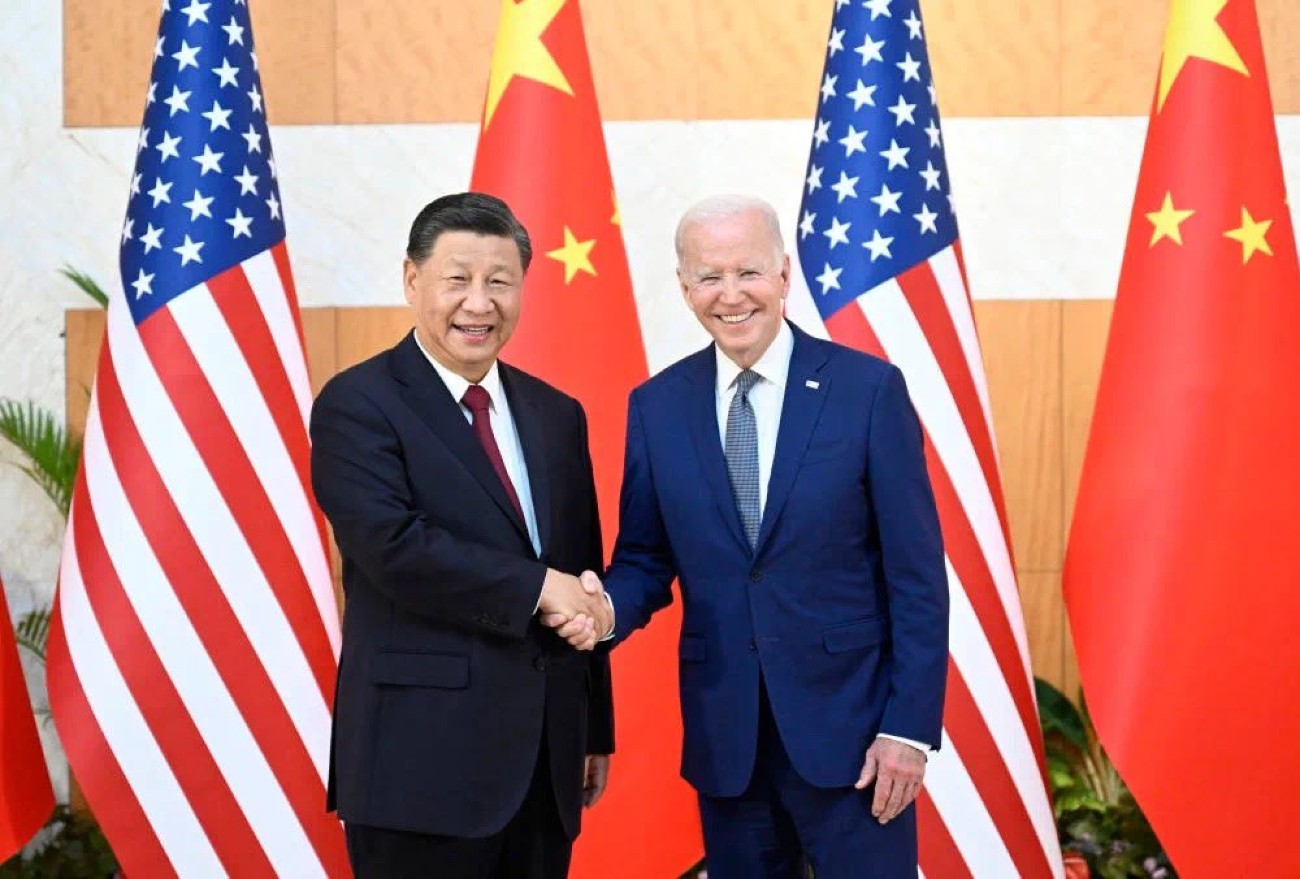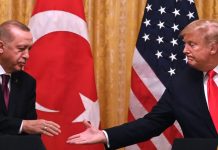China has particular exposure to Africa, with investments rising by 4.4 percent to US$1.8 billion in the first half of 2023. Chinese companies in East Africa, which borders the embattled Red Sea waterway, have found the going tough. Their production has been hampered because they cannot afford the more costly alternative transport options, analysts say.
This is why Chinese traders do not feel happy using the circuitous air, land, and sea routes for safety, “hiring risk-tolerant so-called feeder shipping lines,” or producing less until the Houthi militant attacks stop.
“Chinese companies with a substantial presence in African markets are facing heightened uncertainties and complexities as they navigate these disruptions, prompting a re-evaluation of their shipping strategies and contingency plans to mitigate the impact on their operations,” said Gary Lau, Chairman of the Hong Kong Association of Freight Forwarding and Logistics.
According to the China Africa Research Initiative at Johns Hopkins University, Chinese foreign direct investment in Africa has grown steadily from US$75 million in 2003 to US$5 billion in 2021.
The average rate for shipping a 40-foot container between Europe and China during the second week of January was about US$5,400, up from US$1,500 a week earlier.
However, it was reported that the transfer of cargo from Chinese ships to feeder vessels in places such as Kolkata in India or Karachi in Pakistan adds one to two weeks and US$100 to US$200 per box for every offload from one vessel or load onto another.
Feeder lines, which range from three to more than 100 vessels, were popular during the Corona-19 pandemic when world shipping demand surged.
“The import and export of trade goods and raw and auxiliary materials for project construction of many Chinese-funded enterprises in those countries have been severely affected by the Red Sea crisis, which has triggered a chain effect and caused the suspension of production,” Gary Lau said in an interview with a domestic news website last week.
Resorting To Diplomacy
As Houthi rebels continue to wreak havoc in the Red Sea, China recently sent a diplomat to the major countries involved in the crisis in a bid to “restore safety and stability” in the region.
However, analysts have said that the diplomatic mission is unlikely to yield any solid breakthroughs in the crisis owing to Beijing’s continuing reluctance to intervene further and threaten its neutral position in the Israel-Gaza conflict.
Last month, Wang Di, Director General of the foreign ministry’s West Asian and North African affairs department, became the first Chinese diplomat since the crisis began to visit both Saudi Arabia and Oman as he met with Saudi, Omani and Yemeni officials.
In the Saudi capital of Riyadh, Wang told Yemeni Deputy Foreign Minister Mansour Ali Saeed Bajash that China attached great importance to “maintaining security and stability in the Red Sea region” and added that Beijing supported Yemen’s “legitimate government,” but it would only pursue a “political settlement” with the anti-government Houthi militants.
While there, he made the same point to Saudi Arabian officials that Beijing was willing to work with the country to “restore safety and stability” in the Red Sea.
Meanwhile, Wang also highlighted China’s call for a ceasefire in Gaza during his tour, telling Omani officials that Beijing believed that the Red Sea crisis was a “prominent manifestation of the spillover from Gaza.”
Liu Xinlu, Director of the School of Arabic Studies at Beijing Foreign Studies University, said Wang’s visit showed that the Red Sea crisis was “closely related” to China’s interests.
“Although the Yemeni Houthis have not launched attacks on Chinese ships, the Red Sea corridor is related to world shipping, so the transport of oil and gas resources and commodities still has a relatively large impact on China,” Liu said.
Beijing has also reportedly urged Tehran to rein in the rebel group. Earlier this month, the Chinese Deputy Foreign Minister Ma Zhaoxu told his Iranian counterpart, Ali Bagheri, that Beijing needed “safety of navigation in Red Sea waters.”
Liu said Wang’s visit reaffirmed Beijing’s position about the Red Sea crisis, which was “a spillover of the Gaza war”, and further suggested that “the Palestinian-Israeli issue is at the heart of the Middle East problem”.
The Iran-backed Houthi fighters in Yemen have been causing havoc on the vital Red Sea trade routes since November to protest the Israel-Gaza war. That is the reason why Chinese diplomats want to engage Iran in securing a guarantee that the Iran-backed Houthi do not attack the Chinese ships.
Saudi Arabia and Oman are key players in the Houthi crisis. Riyadh has led an anti-Houthi coalition against the militants since 2015. The years-long war has triggered humanitarian crises in Yemen, but under Oman’s mediation, the two parties started ceasefire negotiations last year.
China Bids For Mediation
“Actually, Wang’s diplomatic visit is about furthering Beijing’s goal of a political solution to the Palestinian-Israeli issue, which is to achieve a ceasefire [in Gaza] through diplomatic mediation and political approaches,” Liu said.
However, Yin Gang, a research fellow at the Chinese Academy of Social Sciences, said that since Wang was not considered a senior official of the foreign ministry, his visit was more of a “routine.”
China has advocated a peaceful resolution to the Yemen crisis, avoiding a harsh stance toward the Houthi militants.
As its influence in the Middle East grows, China has sought to play the role of peacemaker in the Yemen conflict at the diplomatic level. Last year, Shao Zheng, charge d’affaires of the Chinese embassy in Yemen, promoted the idea of China as a mediator after it brokered a peace deal between Iran and Saudi Arabia.

Washington’s Perception
Washington has also pressed China to become more involved in their exchanges in recent months, with US National Security Adviser Jake Sullivan and US Secretary of State Antony Blinken putting pressure on Beijing.
Liu predicted higher-profile diplomatic exchanges related to the Gaza war and Red Sea issues may be on their way, with Beijing still looking to find political solutions to the Palestine-Israel conflict.
China is not alone in trying to maintain a fragile balance in the Red Sea crisis. Saudi Arabia and the United Arab Emirates, both traditional allies of the US, have not joined the anti-Houthi patrols, but neither have they publicly supported the militants’ attacks on Israel. Egypt has also largely remained silent.
“China’s position is mostly one of distancing itself from Western countries. Chinese diplomats have been carefully commenting on the events, but in Beijing’s narratives, the rise of attacks is a consequence of Israel’s war in Gaza,” said Jean-Loup Samaan, a senior research fellow at the National University of Singapore’s Middle East Institute.
It would be premature to assume that Chinese mediation will result in restoring full security to shipping in the Red Sea. Unless there is intervention at the highest levels on all sides, the Chinese low-key diplomatic effort may not yield the desired results.
- OPED By KN Pandita.
- Prof. Pandita (Padma Shri) is the former director of the Center of Central Asian Studies at Kashmir University. Views Personal Of The Author.
- Follow EurAsian Times on X (formerly Twitter)




